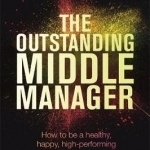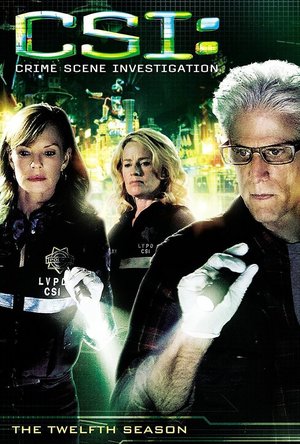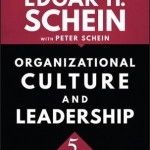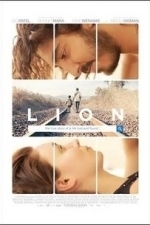
The Outstanding Middle Manager: How to be a Healthy, Happy, High-Performing Mid-Level Manager
Cary Cooper and Gordon Tinline
Book
Recent research shows that the number of people in senior specialist and middle management positions...

Program Management in Defense and High Tech Environments
Book
Program management in a technical environment is as much art as it is science. Effective program...

Creatrix Rising: Unlocking the Power of Midlife Women
Book Watch
Ever since Eve was banned from the garden, women have endured the oftentimes painful and inaccurate...
aging mid-life management women women's non-fiction
Beyond Talent: Creating a Successful Career in Music
Book
This newly expanded edition of Beyond Talent provides user-friendly real-life advice, examples, and...

Strategic Planning for Law Firms: A Practical Roadmap
Book
We don't have to tell you that strategy is critical if you want to achieve differentiation,...

Hitler at Home
Book
A revelatory look at the residences of Adolf Hitler, illuminating their powerful role in...

CSI: Crime Scene Investigation - Season 12
TV Season
Catherine and Nick adjust to life working under D.B. Russell, following their demotions, while...

Organizational Culture and Leadership
Edgar H. Schein and Peter Schein
Book
The book that defined the field, updated and expanded for today's organizations Organizational...
Bob Mann (459 KP) rated Lion (2016) in Movies
Sep 29, 2021
In a true life story, five-year-old Saroo (Sunny Pawar, in an astonishingly adept child performance) is accidentally separated from his family in the Madhya Pradesh region of Western India and goes on a journey by train of hundreds of miles to Calcutta: a city full of people who don’t even speak his language.
Lost, alone and facing the perils of a street child in a dangerous city, Saroo is eventually adopted by a kindly Australian couple (played by Nicole Kidman (“Before I Go To Sleep“) and David Wenham (Faramir in “The Lord of the Rings”)).
Growing up in a comfortable, loving, but not – ultimately – idyllic home environment, Saroo (now Dev Patel, “The Best Exotic Marigold Hotel”) grows up and in his late teens goes to Melbourne University to study Hotel Management (Dev Patel? Hotel Management? What were the odds?!). While there, memories of the past resurface and an obsessive need to trace his Indian origins takes hold, disrupting both his career plans and his relationship with the love of his life Lucy (Rooney Mara, “Carol“). But with a remembered home-town name that doesn’t exist, only hazy memories of the train station he departed from, and thousands and thousands of train stations across India, how could he ever succeed?
India is enormously photogenic and cinematographer Greig Fraser (“Rogue One“, “Foxcatcher“) takes the maximum advantage of that with some memorable and dramatic landscapes: work that has been Oscar nominated. Also Oscar nominated and contributing strongly to the look and feel of the film is a well-judged and effectively used piano score by Volker Bertelmann and Dustin O’Halloran.
In the acting stakes, Dev Patel gives his best ever performance and his Oscar nomination – curiously for Best Supporting actor since, I presume, Sunny Pawar has the most screen time – is very well deserved. A moving performance, particularly at the tearful end of the movie, for which a box of tissues is recommended.
Nicole Kidman, not an actress I have ever hugely warmed to, is excellent here as the fragile adoptive mother, despite having to sport a crazy red curly wig. Another Oscar nomination.
Also worthy of note is young Abhishek Bharate as Saroo’s brother Guddu: the touching chemistry between the thieving young rascals at the start of the movie grounds the whole family relationship that’s sets up the emotional heart of the subsequent quest.
Luke Davies’ adapted screenplay is also Oscar nominated, although perhaps not as deserving to win as some of the other nominees. I would (naively perhaps) assume that adapting a screenplay from a true-life story must be an easier task, since the facts have to speak for themselves. But besides that, while the first half of the film, with the scenes in India, is exceptionally good, the Australian section became a more patchy with the motivations of Saroo’s actions and the impact they have on his adoptive family not feeling completely fleshed out.
While I’m sure being a street urchin in Calcutta in the mid-80’s was a horribly difficult and perilous existence, the screenplay paints the sense that that almost EVERY male in the city is either a pedophile or hopelessly corrupt: something that if I was a Calcutta resident I would likely take offence to.
However, this is a hugely involving and enjoyable movie, and a “Best Film” rounds off the impressive haul of six Oscar nominations. You might be cynical and view the subject matter as being comfortable Oscar-bait… but you can hardly argue about the absolute quality of the film-making on show here.
By the way, if you are curious as to where the title of the film comes from, you need to wait until the end titles: a masterly touch that I really liked!
The end titles also lay out the fact that the perils of street kids in India is still real and present, and the film is supporting charitable work to help. If you were moved by the film (as I was) you can make a donation at http://lionmovie.com (as I did)!
Highly recommended.


